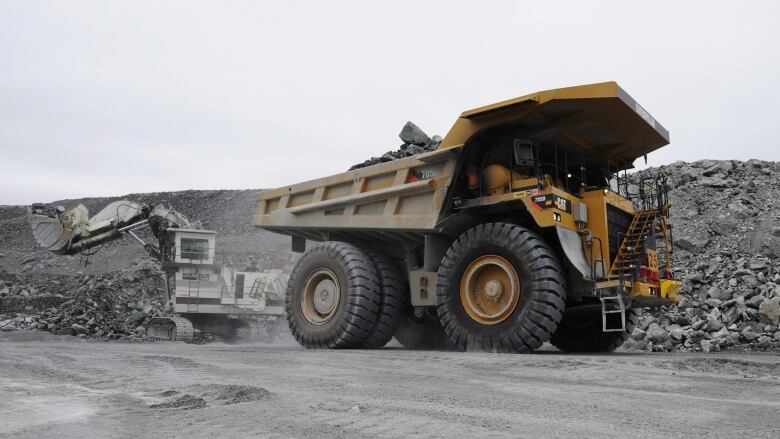New report gives thumbs up to Indigenous employment in Nunavut mines
Agnico Eagle Mining described as doing things right when it comes to training and retaining Indigenous workers

A new report from the Conference Board of Canada says employers looking to hire and keep northern Indigenous employees could learn from a Canadian gold mining company, Agnico Eagle Mines.
The study, Working Together: Indigenous Recruitment and Retention, was put together by researchers with the board's centre for the North. Researchers interviewed dozens of corporations, public sector employers and Indigenous employees and found many employees often don't apply for jobs because of a lack of education, life skills and housing support.
When it comes to Indigenous employment in mining, Nunavut is the front runner. Ninety-seven per cent of Nunavut residents who work in the industry in the territory are Indigenous. In the Northwest Territories, it's 52 per cent.
The study highlighted a set of training programs run by Agnico Eagle, which owns the Meliadine mine near Rankin Inlet and the Meadowbank mine north of Baker Laker. It offers week-long, Indigenous-run training programs which teach potential mine employees life skills, such as punctuality and how to cope with homesickness.
Once they've completed that course, participants are invited to Meadowbank where they are trained to fill a variety of entry-level jobs.
"After completing the program, interested participants are considered as candidates and are typically hired within a month," the study states.
Once employed, Agnico Eagle works with its Indigenous employees on a plan to get them into a more skilled, higher paying position.
The program has had amazing results, the study says. In the N.W.T, non-Indigenous employees make 24 per cent more than their Indigenous co-workers mainly because Indigenous employees are often hired for less-skilled and lower paying positions.
But, in Nunavut, there is no noticeable salary difference between non-Indigenous and Indigenous employees.
Affordable housing an issue
Another major barrier that often prevents employers from recruiting is a lack of housing support, particularly in Nunavut.
Potential employees who may be a good fit for a job won't apply because it doesn't include housing. Likewise, employees often stay in jobs they dislike because of good housing benefits.
The study says offering housing support to potential employees could encourage more Indigenous northerners to apply.












_(720p).jpg)


 OFFICIAL HD MUSIC VIDEO.jpg)
.jpg)



























































































